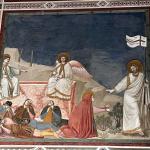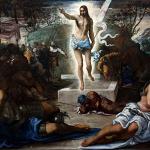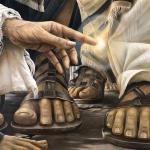Leviticus 10 is often cited in support of the Reformed “Regulative Principle of Worship.” It does support that principle, but not if the principle is formulated, as it often is, as “whatever is not commanded is forbidden.” The sin of Nadab and Abihu was offering “strange” or “unauthorized” fire on the altar. But there is no command anywhere about what fire was to be used for burning incense. Yet, the priests had to make some determination of what fire to bring, and from the experience of Nadab and Abihu it’s clear that they could make the WRONG decision.
In the absence of specific commandments about the fire, how were they to know? They should have reasoned from the structures of the sanctuary system. The distinction between holy and profane runs the length of the system: There is holy food and common food, holy people and common people, holy things and common things, holy incense and common incense, a holy God and strange gods. With that distinction being hammered again and again, they should have concluded that there is also holy fire and strange fire. With regard to the regulative principle, the important point is that they were supposed to make a liturgical decision NOT merely be searching for an explicit command, but by reasoning from the existing commands and patterns to draw conclusions concerning liturgical actions that were not dealt with explicitly.














